Amar Ekushey Boi Mela: An essence of Bengali excellence

Although there are varying opinions about the Ekushey Boi Mela organised by Bangla Academy, the book fair is unique in terms of taste, excellence and sophistication. It has become a symbol for Bengali thinking—a fertile ground for collective creation.
The books in Boi Mela come in many styles and formats and it is almost impossible to gauge the scope and subject matter of the books coming to the fair. It is difficult to imagine the growth of the Boi Mela, which only started with 32 books back in 1972. The sheer size of the book fair testifies that the nation has progressed well in the practice of knowledge. Our progress cannot be captured in the rhetoric of infrastructure development alone. We need to examine how a small effort in the 60s turned into an important platform in the practice of intelligence.
According to a news report published by The Daily Star on March 18, 2022, 69 poetry books, 501 novels and 467 story books were published in Amar Ekushey Boi Mela last year. According to a report published by Bangladesh News Agency on January 24, 2023, Bangla Academy has allocated a total of 573 institutions and a total of 704 stalls (excluding pavilions) for the 2023 Amar Ekushey Book Fair. Every year, its magnitude increases—in terms of the number of books, readers, and buyers.
Few large platforms for the collective intellectual expression of a nation exist around the globe. Compared to book fairs in Frankfurt, London, Paris, New York or Calcutta, Amar Ekushey Boi Mela stands out with unique features.
It is a subtle union of three different aspects. The first aspect is the awareness of the Bangla language. Given that the month of February is associated with the language movement, in which we shed blood for our language, there is a mythological and symbiotic relationship between the Boi Mela and the language. This relationship has helped strengthen the ideas which we consider alongside the Language Movement. This celebration of the Language Movement which happens in the Boi Mela allows the ideas associated with it to be passed down from one generation to another. Boi Mela has become a focal point for the discussions surrounding the Language Movement.
The fair's breadth has increased over time. Since 2014, a large portion of it has been moved to Suhrawardy Udyan, thereby expanding the roots of the tradition. The fair which has grown to such a grand size is now situated at the foot of Suhrawardy Udyan, the main site of our freedom struggle. This was the site where Bangabandhu Sheikh Mujibur Rahman called for the freedom and independence of our nation.
In an article published in Prothom Alo back in 2014, "Boimelar Itihas O Notun Angike Boimela", the former Director General of Bangla Academy and researcher Shamsuzzaman Khan mentions, "As a result of the expansion of the space of the book fair here, the spirit of the struggle for freedom has been combined with the tradition of Ekush, which commemorates the inauguration of Bengali nationality in Bangladesh. Now the fair has a new aspect, scope and dimension."
Another important aspect is the design of the book stalls at the Ekushey Book Fair, where there is a grand amalgamation of Bengalis' own design style. The size of the stalls, their colour schemes, use of materials, layout and structure of the fair all together form a mega picture of "Bengaliana".
Even if someone goes to the book fair for any other reason than buying books, they will like it enough because of two reasons—the freshness in everything: from books, designs, people and stories. At the same time, the Boi Mela stimulates creativity within the minds of people. Most visitors are unable to buy all the books they like, which means that they need to return with some degree of dissatisfaction. However, there is a scope to see this dissatisfaction in a positive light as Boi Mela helps bring clarity to the thought process of people as well as introduce them to various issues.
Thirdly, it allows you to widen your social network. Boi Mela allows one the opportunity to meet and interact with loved ones, and it is an excellent application of communication. Therefore, the book fair opens the door to an immense potential of social networking. It is a place full of social capital, and such interactions allow people to build connections, such as interacting with people in the Little Mag corner.
On the other hand, the country's publishing industry has experienced immense growth. It can be said that it has established itself on a solid foundation based on the event. This has led the industry to flourish as many are now investing into the industry. Given that the Boi Mela runs for a month, this is probably the world's longest book fair in terms of duration. This fair draws people, not just from Dhaka, but from all over the country—from divisional cities, suburbs and even from outside the country.
The Amar Ekushey Boi Mela shows the capacity of Bengali thinking. The book fair is an open window to society, in terms of creativity and thinking. Professor Ali Riyaz also mentions in his article, "Another characteristic of the book fair should be easily seen when going to the fair and looking at the books arranged side by side, and that is tolerance. Totally opposite and rival discourses on the same subject coexist undeniably, and this is necessary for a society and a state. The coexistence of these contradictory statements is, if anything, the essence of the fair that began in 1972 at the Bangla Academy premises and has continued over the past few decades.
However, today, that path of fostering discourse is not free of obstacles. On various pretexts, book fair authorities have been depriving various publishing houses from allotment of stalls. For example, in this year's Boi Mela, Bangla Academy did not allocate a stall to Adarsha Prakashani after accusing them of having 'political obscenity' in three books. In 2015, Bangla Academy closed the stall of Rodela Prakashani after it published a book which Bangla Academy considered 'objectionable'. Back in 2016, police closed down the stall of Bwadip Prakashani, seized several books of the publication, and arrested those associated with the publication for allegedly hurting religious sentiments.
In a modern society, the reader is a sovereign entity. It is up to them to decide which books to accept and which to reject. Dissent, different reasoning, different language is not a crime. Rather, different opinions are acceptable in all national and international standards of expression. If freedom of thought is blocked in society, then that society is bound to fall into darkness.
In an advanced society, the same issue is judged and analysed from different perspectives and it is not unacceptable. Any kind of creativity is the individual's exclusive achievement, its exercise is the individual's right, which is protected by all national and international standards.
The slogan that Bangla Academy holds, "symbol of Bengali ethnicity and intellectual excellence", should be taken seriously. Bangla Academy should be supportive and not controlling in the practice of diversity of thought and opinion. Amar Ekushey Boi Mela may be a bright environment for self-esteem, different views, and thought-creation. And if this is confirmed, the message of Amar Ekushey Book Fair will be upheld.
Translated by Hrishik Roy.

 For all latest news, follow The Daily Star's Google News channel.
For all latest news, follow The Daily Star's Google News channel. 
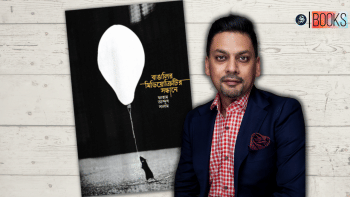
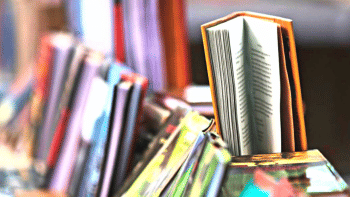


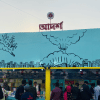

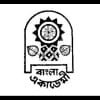
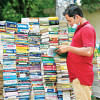
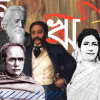


Comments